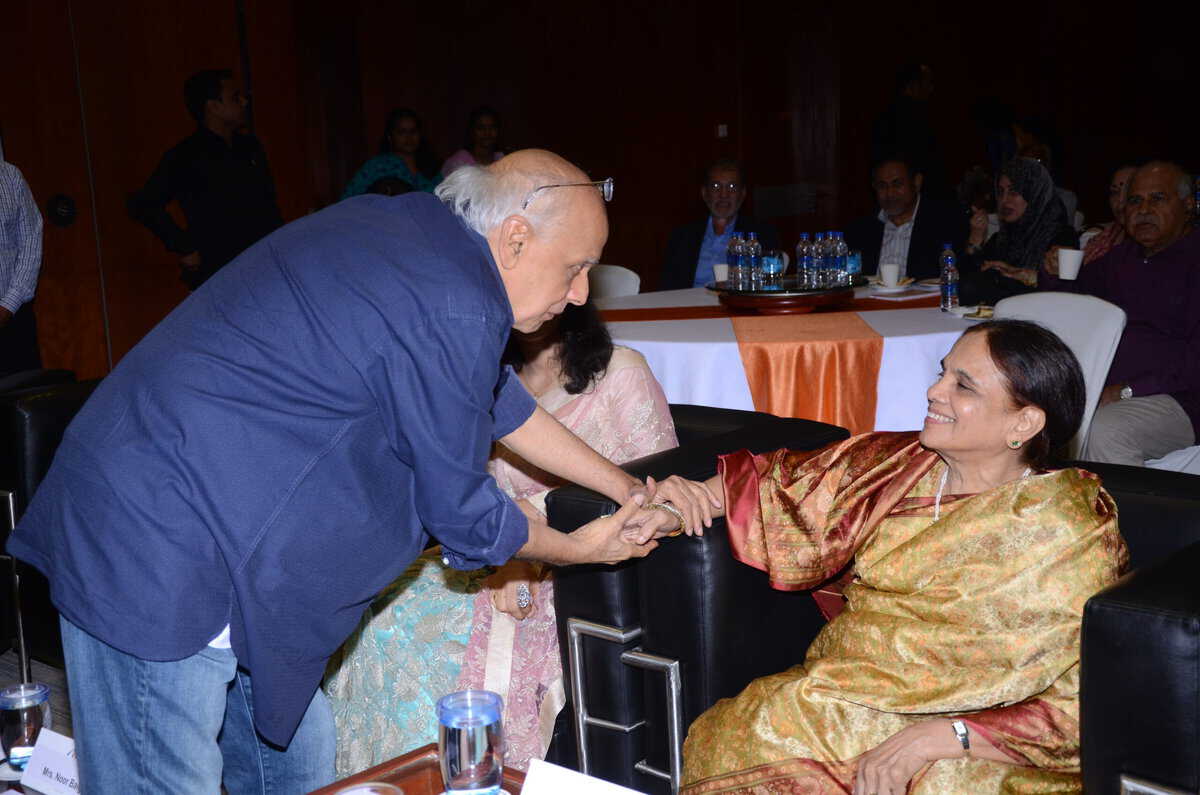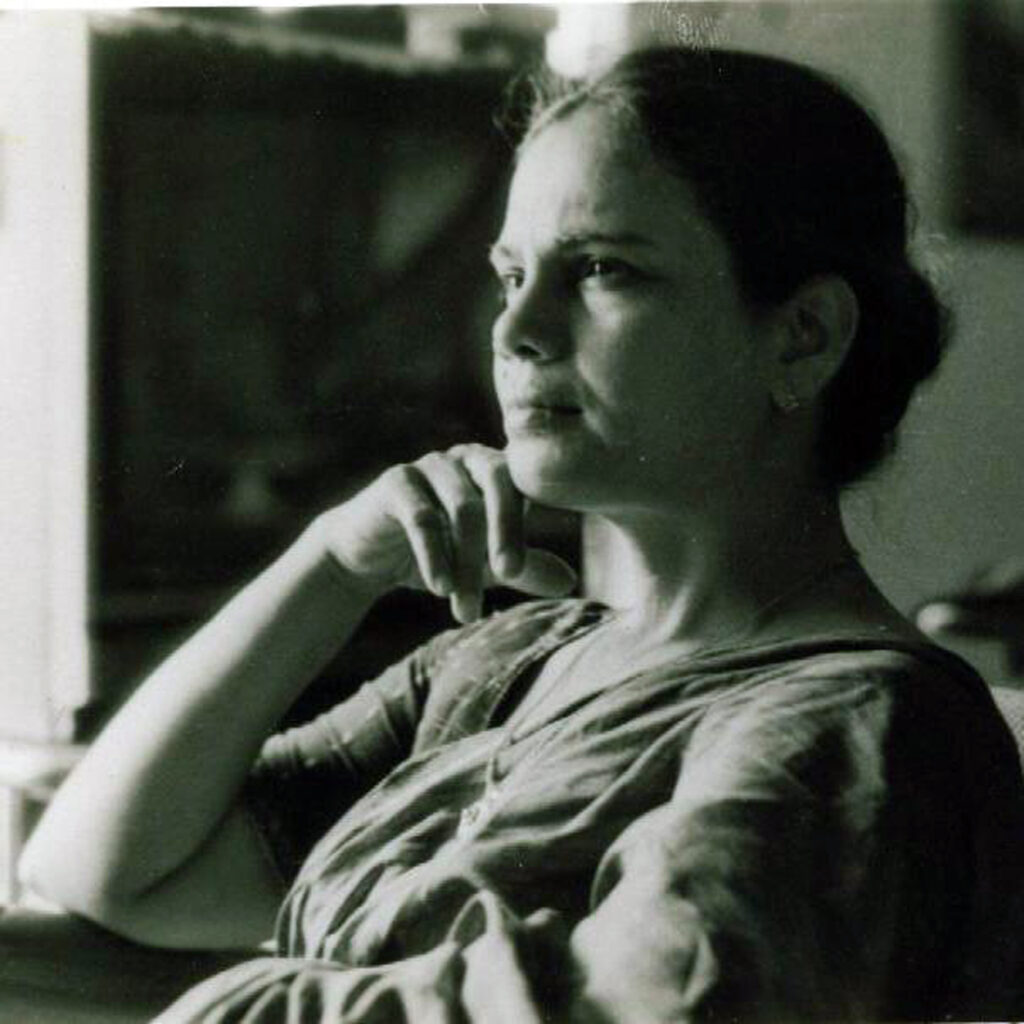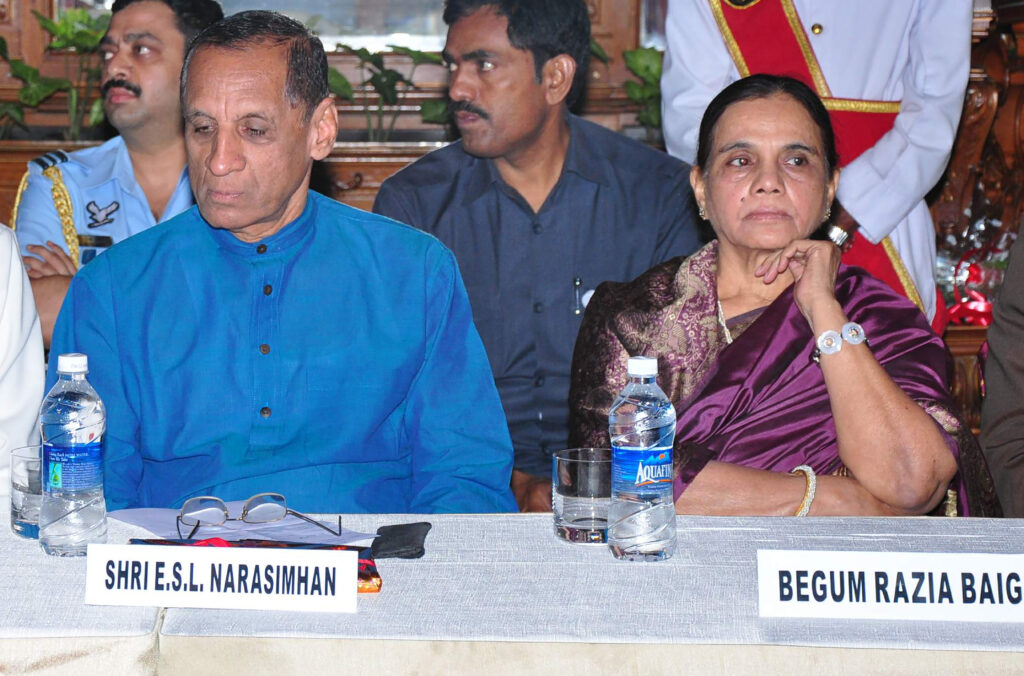
By Noor Baig
There’s a line in our play ‘Under an Oak Tree’, which I wrote and Begum Razia Baig produced: “And look, what one oak tree has brought forth – a mighty orchard.”
The oak tree refers to theatre doyen Qadir Ali Baig’s looming legacy that falls upon his family. The legacy is heavy as a shadow and protective as a shade. The orchard refers to the audience that the Foundation in its name has been drawing across the globe. Yet, there was a person nurturing the oak tree, the acorns and the orchard.
Begum Razia Baig was born into a large yet extremely close-knit business family, steeped in traditions and quintessential Hyderabadi customs. She married into an aristocratic household where women’s roles were preserved in the conventional context, albeit with modifications like polo matches, derbies and high tea soirees, seeing as her father-in-law, Mirza Mahmood Ali Baig co-owned a stud farm and was special attaché to the Prince of Berar.

At the time, she didn’t know that her conservative notions were to be challenged. And that she would find her own unique path by holding firmly to her old-school ways while creating space for her unconventional family. Her husband Qadir Ali Baig shook off the reins and forged his own way as a legendary theatre maker. An unheard-of pastime, leave alone profession. As much as Begum Razia Baig was probably shaken by this uncertain profession, she went along as much as she could, helping adapt hard-core Hindi plays in Hindustani for Hyderabadi audiences and design costumes. Her affinity for aesthetics found an outlet in the large, palatial ancestral home and gardens she created, as much as creativity was expressed in her legendary authentic legendary recipes.
Upon her husband’s untimely demise in 1984, she was still a young woman with three sons. She dug her heels in, squared her shoulders and held steadfast to her husband’s daydream: That their eldest should follow theatre, the middle one a doctor, and the youngest should join the air force. As far as she was concerned, like any mother (again a topic I explored in the play), she wanted stability, peace and comfort for her children. Especially, after the various upheavals they had seen so far.
And yet, support is what she did. Considering her background and her approach to life, the toughest part for her would have been to let go of her expectations and fears and to go along with her children’s choices. Going to uncharted new avenues, cheering on complex projects, trying to understand and come to terms with incomprehensible new ways of doing things. Things or spectacular projects for which she was both audience and producer.

Being a private person, she wasn’t very vocal in praise and was quite swift to be critical. But she showed up for her people — for her family, her theatre audiences, her repertory members, artistes and technicians. She was there, a steady rock, making sure everyone was fed, ensuring everyone felt welcome. She wouldn’t miss a show if she couldn’t help it and she always wished every single person on the team good luck. Whether at the numerous plays she produced heading the Qadir Ali Baig Theatre Foundation or Chairing the Qadir Ali Baig Theatre Festival.
She represented a leisurely, grounded way of life. A life where elaborate meals were slow cooked on wood fire, where seasons heralded particular foods to be eaten, where work was balanced with rest, where you read the day’s newspaper and had a cup of brewed, Darjeeling tea because the time to think and process life was important too. She held firm to her ideologies and beliefs about the world and even if it seemed archaic, she could be surprisingly very inclusive and progressive, in that she connected with people’s innate humanity. She could be quick to disapprove but quicker to forgive, quicker to love and the quickest to let go of a grudge. It wasn’t always easy to sync with her school of thought but she never really forced her opinion on you. She was simply honest about what she felt and expected from people but then, she would let all trivialities go too, without any need for clarification. The fact that a relationship mattered, above all else. If she loved you, she was on your team. For good.
She didn’t share too much about her innermost thoughts and feelings, but she would make you draw out yours. She didn’t reveal much of her hopes and dreams but as a young girl, she did dance with her sister-in-law, outfitted in slacks and a shirt, a moment captured forever in a photograph. She loved nature and colours and although she was a gracious host, she honestly didn’t care for artifice. She never needed outwardly validation. She adored her sons, grandsons and siblings and doted on numerous nephews and nieces. She spun a cosy cocoon with her young and old staff spanning generations and mothering them all. She was still “Dulhan Pasha” for them.And each person had their own special and unique bond with her.
Indeed, it is a curtain call on the era of old world charm and the feeling of decades-long loyalty and unconditional devotion that Ammi’s presence signified.
It’s easy to remember her in her elegant chiffon and silk saris and pearls, her aadaab and charming smile but I remember her dry, sarcastic wit and her short patience with false illusions of any kind. “Ababababa, bas karo!” I can hear her say and I smile to myself. In her name, we shall charge forward with authenticity, her characteristic dignity and simplicity that she epitomized all her life whether at her chowki dinners or at the performing venues both sides of the stage in India and overseas.
(Noor Baig is a published author. She is writer of most plays produced by Begum Razia Baig and her daughter-in-law)
